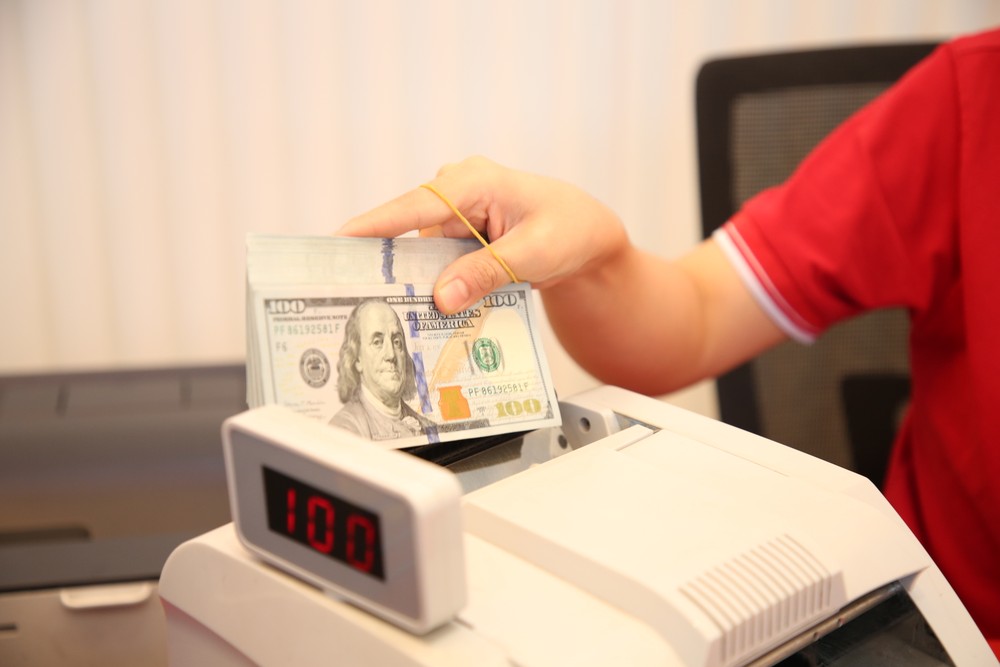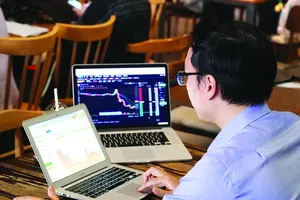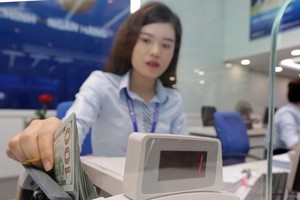
The US dollar in the free market reached VND25,700 on March 11.
After a 4-month pause, from March 11, the State Bank resumed bidding for bills with a term of 28 days and collected nearly VND 15,000 billion. The winning interest rate is 1.4 percent per annum, much lower than 2.13 percent a year of the 1-month term interest rate on the interbank market, showing that system liquidity is quite abundant. On March 12, the State Bank continued to offer 28 day term T-bills according to the method of interest rate bidding and unit price bidding.
Previously, in September 2023, when the USD/VND exchange rate was also under a lot of pressure when commercial banks’ liquidity was abundant with credit growth still at a low level, the State Bank also issued bills.
In fact, credit in the first 2 months of 2024 increased more slowly than in the same period of previous years, while liquidity in the banking system was abundant. Therefore, the move to attract Vietnamese dong through the issuance of the treasury bill made by the State Bank is considered by experts to be aimed at absorbing liquidity in the first market ( between commercial banks) to reduce pressure on exchange rate speculation in the short term. The state bank didn’t take back too much money so as not to cause liquidity stress in the first market and limit the impact on the interest rate level in the second market ( between financial institutions, businesses and residents).
Chairman Huynh Minh Tuan of the Board of Directors of FIDT Joint Stock Company, assessed that the issuance of treasury bills, if maintained continuously in the coming time, could tighten liquidity somewhat in the interbank market or the stock market because the stock market has recently maintained over VND 23,000 billion a session thanks in part to excess liquidity in the financial system and record low interest rates flowing into the economy.
The issuance of treasury bills by the State Bank is not expected to affect the deposit-lending interest rate structure of the banking system in the second quarter of 2024, in the context that credit growth has not improved significantly yet.
Meanwhile, Mr. Tuan said that speculative cash flow into crypto and gold is a local risk for Vietnam in the short term; thus, responsible agencies need to pay attention to it because this is the main cause of exchange rate pressure. In recent weeks, both crypto and gold have hit historic highs, causing momentum speculation to strengthen.
Although there is no specific data on speculative cash flows in these two markets, Mr. Tuan believes that the scale of Vietnam's speculation on crypto and gold (especially crypto) is significantly huge which might create strong fluctuations in the financial market. Currently, the exchange rate pressure from the free market is huge. The free exchange rate touched 25,700 VND/USD, while the P2P exchange rate on crypto was also above 25,800 VND/USD.
The reference buying rate is still kept at 23,400 VND/USD by the Banking Operations Center of the SBV The reference selling rate decreased by 19 VND compared to yesterday, reaching 25,102 VND/USD.
The USD/VND exchange rate at commercial banks also decreased today. Specifically, Vietcombank listed the USD price at 24,430 VND/USD for buying and 24,800 VND/USD for selling, down VND 10 per US dollar in both buying and selling compared to the previous day.
Recording USD prices at some foreign exchange points in Ho Chi Minh City on March 12 shows that US dollar prices on the free market have also cooled down. The buying and selling prices are at VND25,480 per US dollar and VND25,600 per US dollar respectively, down VND 20 on the buying side and VND 100 on the selling side compared to the previous day.
Although the US dollar prices on the free market have also cooled down, they are still VND800–VND900 per US dollar higher than at banks. This difference is quite huge and analysts pointed out that because people hold US dollars that has caused the USD price on the free market to have a big difference with banks.
























